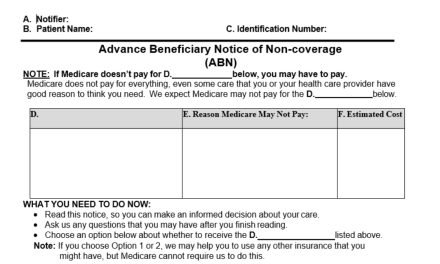
Financial Policies: A Growing Area of Risk in Practice

Financial Policies: A Growing Area of Risk in Practice
As health care providers, we have enough to worry about with billing properly, coding, and documentation, but financial and collection policies in our clinics should also be an area of concern. Why? I am convinced that how we explain our fees can be one of the greatest tools for the financial success of our practices. Our financial policies and how we present payment options for our patients can also be one of our greatest areas of RISK in practice. These policies can be used as a weapon against us if they are not compliant with all the layers of regulations we face today. You are MORE likely to face financial problems from audits, fines, and penalties than you are from malpractice claims. That’s not my opinion. It’s a fact. One of the top reasons for complaints filed with Boards of Examiners is not over our clinical care, but financial policies.
Your office financial policy should always be compliant with the rules and regulations of your provider agreements and other regulations, consistently applied to every patient, and considerate of the financial challenges that people may have. Many provider agreements make it clear that you should NOT collect in advance for services that are covered by the plan. This means prepays can get you in trouble if you are unsure if they are allowed in your state or by the health plans. Check with your State Board or legal counsel, and don’t assume that prepays are legal just because everyone offers them.
A sound financial policy in your clinic can help you avoid:
Dual Fee Schedules:
When providers charge more to insurance patients than cash patients, which invites problems in most cases.
Improper Time-of-Service Discounts:
Discounts must be “reasonable and defensible.” Most experts say between 5 and 20% is reasonable, but make sure you are not discounting deductibles or co-payments. That may violate your provider agreements.
Inducement Violations:
Be cautious when you consider offering discounts to your patients if you don’t know all the rules. Far too often, we forget that a health care “system” regulates us, and we must comply with all layers of the system. Respect the rules and regulations from your board of examiners, provider agreements, the state department of insurance, and attorney general’s office, as well as CMS and the Office of Inspector General (OIG). It sounds like a daunting task, but it IS possible with the proper financial policy.
More importantly, despite having the best, most legal, most enforceable financial policy known to man, always stop and ask yourself, “Is it simple enough that anyone on staff can explain it clearly and concisely?” If your financial policy is so complicated that only one person on staff can explain it, then it doesn’t matter that it is compliant. Keep it simple. If you would like a copy of a one-page simple financial policy that can be used to set the stage for a simple, compliant financial system in your office, visit www.chirohealthusa.com/FROF.
Dr. Ray Foxworth is a certified Medical Compliance Specialist and President of ChiroHealthUSA. A practicing Chiropractor, he remains “in the trenches” facing challenges with billing, coding, documentation, and compliance. He has served as president of the Mississippi Chiropractic Association, former Staff Chiropractor at the G.V. Sonny Montgomery VA Medical Center and is a Fellow of the International College of Chiropractic. You can contact Dr. Foxworth at 1-888-719-9990,info@chirohealthusa.com or visit the ChiroHealthUSA website at www.chirohealthusa.com.



















